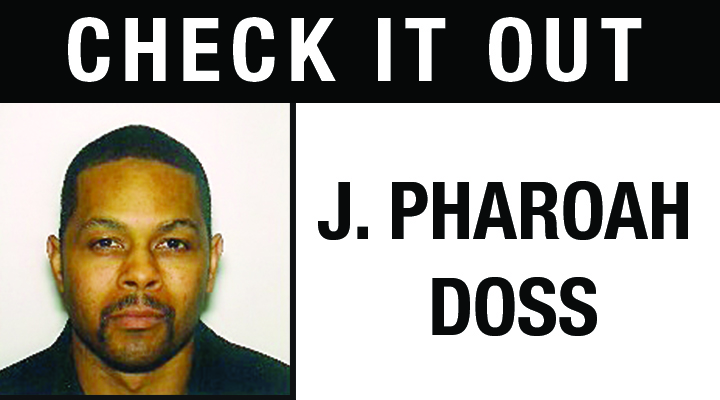by J. Pharoah Doss, For New Pittsburgh Courier
For years Black Lives Matter demanded the elimination of cash bail because its negative impact on people of color is disproportional. The bail elimination movement has made progress in California, New York, and Illinois.
A few weeks ago, a Republican state representative in Kentucky proposed a bill to detain defendants without bail if there was evidence that they were a danger to the community.
This bill wasn’t proposed to counter the bail elimination movement. It was a direct response to one person being bailed out of jail for an assassination attempt.

Quintez Brown, a 21-year-old BLM activist, was charged with attempted murder and four counts of wanton endangerment. Brown was accused of shooting multiple times at mayoral candidate Craig Greenberg from the doorway of the candidate’s office on February 14. Brown was apprehended ten minutes later, a half a mile from the crime scene, with a loaded 9mm Glock magazine, a handgun, and additional magazines.
Days later BLM’s Louisville chapter paid Brown’s $100,000 bail. BLM claimed Brown had mental health issues, and the local jail didn’t have adequate resources to address Brown’s needs.
When did Brown start having mental health issues?
In 2018 he was interviewed by MSNBC’s Joy Reid at the student-led march for gun control in Washington, DC. At the University of Louisville, he was given an honor for Black students who achieved academic excellence and showed a commitment to serve the community. Brown also interned at the Louisville Courier-Journal and wrote a column on race and social justice.
In 2020, the Louisville Metro Police fatally shot a 26-year-old Black woman, Breonna Taylor, while serving a warrant.
Dr. Monica Wendel, from the University of Louisville, issued a Declaration of Racism as a Public Health Emergency. The mayor of Louisville followed suit with an executive order that declared racism a public health crisis. The mayor acknowledged all of the societal, economic, physical, and mental health impacts of racism that harm every Black person in Louisville.
Dr. Wendel also wrote, “As suggested by Dr. Ibram X. Kendi, we are either racist or anti-racist, there is no middle ground … We must acknowledge and re-create our systems of power that advantage some and exploit others.” (Dr. Wendel included other phrases like “the criminalization of blackness” and “the alienation and traumatization of the Black Louisville community.)
Maybe after racism was declared a public health crisis, Brown started to doubt the brightness of his future. Since there’s no middle ground, one is either racist or antiracist, Brown could also have concluded one is either an oppressor or the oppressed, an exploiter or the exploited, a human being or the dehumanized.
Its possible racism as a public health emergency created an existential crisis for Brown, and he began to think being Black, oppressed, exploited, and dehumanized were one and the same.
Could the internalization of these negative identities create mental health issues? If so, wouldn’t the hyperbolic declaration of racism as a public health crisis be a contributing factor?
That same year Brown wrote in his column, “I’ve seen more and more Black lives shattered by America’s social contract, and yet many continue to believe in it despite the grief, the anger and the pain from the country’s most vulnerable … I, myself, must figure out how to live free in my black body while I still have it … The hopelessness, trauma, and despair that comes with existing as a Black person in this country may indefinitely be trivial to a White reader. Some find hope in my words, but I find a troubling reality that I must, once again, figure out how to exist within.”
Mayoral candidate Greenberg released a statement expressing his outrage that BLM bailed out Brown. “Our criminal justice system is clearly broken. It is nearly impossible to believe that someone can attempt murder on Monday and walk out of jail on Wednesday. If someone is struggling with mental illness and is in custody, they should be evaluated and treated in custody.”
BLM dismissed all criticism for their decision to post Brown’s bail and reiterated that he needed mental health support.
Except there’s a big difference between mental health problems and a mind rich with bankrupt ideas.
